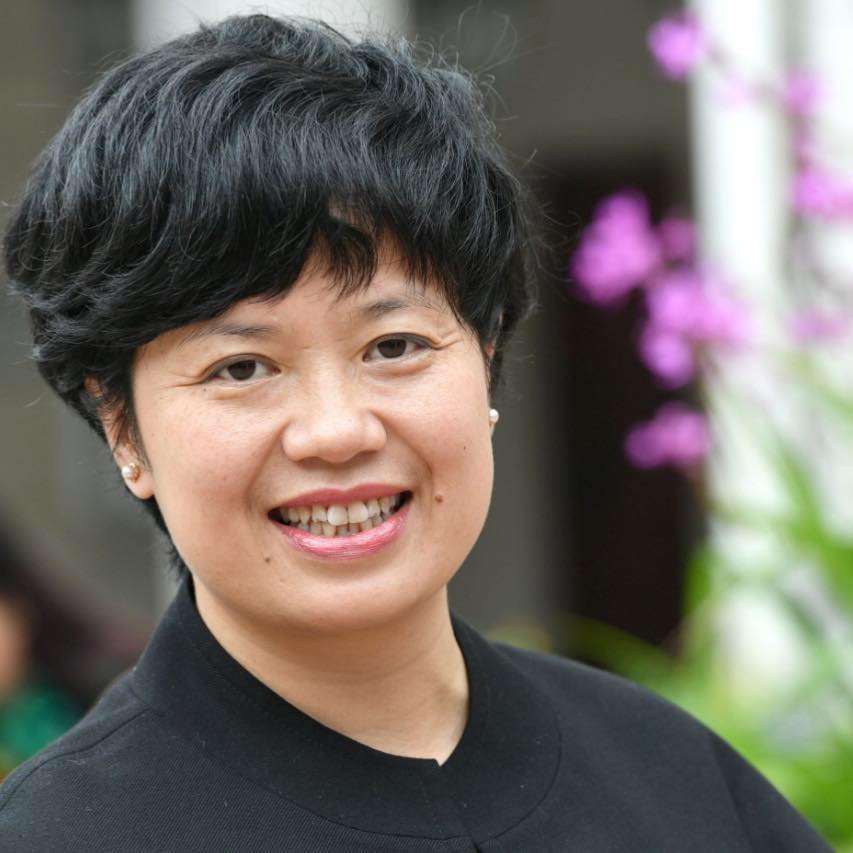When organic becomes an inspiring wellbeing lifestyle
For Tyna Huynh, co-founder of Drinkizz, organic is not just a food choice but a way of life that fosters a deep connection between people, nature and community.




Van Anh, head of education at the British Council Vietnam, shares her view on Vietnam’s education system, and how to promote equity in the field.
According to a report by Bloomberg, Vietnam is ranked as one of the fastest growing economies for several years, with a growth rate of 8.02 per cent. The Government of Vietnam has identified education as a priority to develop a competent and comparable workforce to respond to the economic growth and competitiveness.
Internationalising of its education system is defined as one of the solutions to improve the quality of the workforce by allowing foreign education providers to open campuses in Vietnam and to collaborate on joint training programmes.

In recent years, transnational education (TNE) has become a growing trend in Vietnam’s higher education scene.
TNE in Vietnam comprises of several types of partnerships which include franchised degree partnerships delivered by Vietnamese universities, foreign-invested higher education institutions (HEI), joint degree partnerships, articulation or credit transfer agreements and distance learning courses.
According to the Ministry of Education and Training (MOET), the government has approved 530 joint training programmes between local and foreign universities, which includes over 100 programmes with UK tertiary institutions.
Benefits of TNE in Vietnam
TNE brings about many benefits such as offering more international education choices for students to study at home, promoting partnerships and student mobility, enhancing the quality of host institutions and contributing to quality of Vietnam’s workforce.
In addition, it can bring benefits to the society though increasing accessibility to education and the workforce, and narrowing gender and education gaps.
Other benefits of TNE partnerships include helping host institutions build institutional international strategy and reputation, increasing institutional competitiveness, developing teaching capacity in institutions, strengthening the academic talent pool and responding to unmet student demand such as in languages, and niche subjects relating to sustainable economic development.
Besides, the cultural and social impacts, TNE allows students to develop analytical thinking and language skills, which are applicable in their work and social lives post-graduation and provides an opportunity for local students to have quality education at home.
Challenges of TNE
Despite the growth in the number of TNE programmes, challenges exist.
TNE programmes require long term commitment from both host and home institutions. The majority of TNE programmes are franchised, and is thus dependent on the staff and investment capacity of host universities.
Another concern is the quality assurance and accreditation of TNE programmes. To ensure that the programmes are of high quality, it is important to set clear standards for quality assurance and support.
As such, the Vietnamese government has allowed international accreditation agencies to operate in Vietnam. For instance, the UK Quality Assurance Agency (QAA) was granted a license to operate in September 2022, opening opportunity for better quality assurance and accreditation.
In recent years, the number of students enrolled in TNE programmes is still relatively low. According to a recent report by British Council, the challenges for access to TNE programmes in Vietnam include language and financial barriers.
This can perpetuate existing inequality and limit opportunities for students from underrepresented communities.
Therefore, TNE providers in Vietnam can consider language culture, and financial support to help increase participation of students, especially females from underrepresented communities and ensure they get sufficient support. Currently, some UK providers such as the British University Vietnam is offering full scholarships on bachelor students.
Future of TNE
Having said the above, TNE presents significant potential to promote equity in Vietnam’s education sector through the collaboration of the government, individual HEIs in Vietnam, partner international universities and international accreditation agencies.
TNE partnerships can open new markets and increase the accessibility to quality education for groups which were previously excluded, creating a more level playing field for students in Vietnam.
In the next few decades, TNE will continue to grow and reinforce its status as a pivotal feature of HEIs in Vietnam due to its increasing popularity.
Given the values that TNE offers to students and the society, key agents in Vietnam should strengthen collaborative efforts and continue to embrace TNE partnerships to increase the opportunities for marginalized and disadvantaged groups to participate in and expose to higher quality education and international education opportunities.
For Tyna Huynh, co-founder of Drinkizz, organic is not just a food choice but a way of life that fosters a deep connection between people, nature and community.
Embracing respectful workplaces could very well be the key to unlocking a more prosperous future for Vietnam's garment industry.
Vietnamese businesses have had a long journey with great achievements, and this path will continue and blossom in years to come.
While some jobs are expected to be replaced by emerging AI applications, the technology is broadly seen as a catalyst for positive transformation in the workforce.
The energy transition is bringing forth new challenges, particularly in refining financial systems.
Alex Hambly talks about investment opportunities in Vietnam following his appointment as chief investment officer (CIO) of VinaCapital.